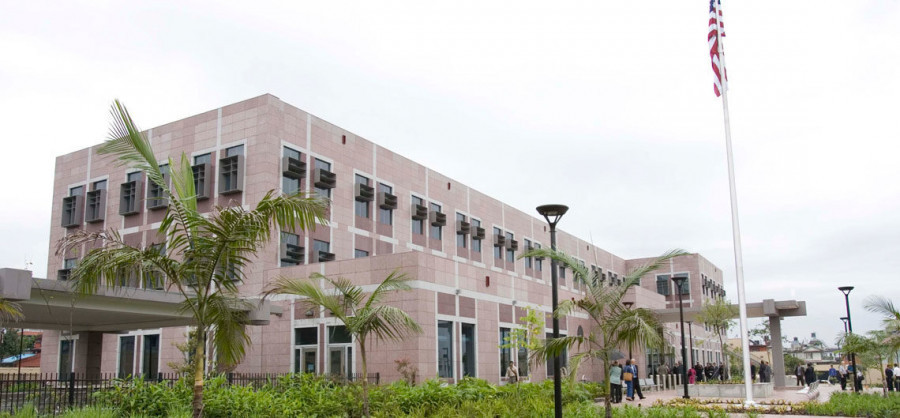National
Availability of funding under MCC is not open-ended, the United States says
Washington’s statement saying whether to accept the grant under the programme is Nepal’s choice comes just as the deadline for parliamentary ratification of the programmes expires.
Post Report
The United States has said that availability of the funding under the Millennium Challenge Corporation Compact Programme is not open-ended and whether to accept the grant under the programme is Nepal’s choice.
“Tangible, near-term steps in Nepal are necessary to ensure the continued viability of the programme,” said the US embassy in Kathmandu in a statement on Monday.
The US statement came just a day ahead of the deadline to ratify the programme from Nepal parliament.
The parliamentary ratification of the $500 million US grant has remained stalled for a long time due to dispute within the ruling Nepal Communnist Party.
A section of ruling party leaders says House ratification of the US programme in its existing form undermines Nepal’s sovereignty and they have been demanding some amendments to the agreement.
Those in the ruling party who are opposing the MCC also argue that the programme is part of the US-led Indo-Pacific Strategy aimed at ‘containing China’. Some have also taken exception to a clause in the MCC agreement that says the compact will prevail over existing Nepali laws.
Millennium Challenge Corporation (MCC) is an aid agency under the US government and the MCC compact is a large, five-year grant programme under which the fund is provided to the countries that pass the MCC’s eligibility criteria including democracy and transparency.
As per the agreement signed between Nepal and the MCC in 2017, a parliamentary ratification is must to implement the programme.
Stating that the US is aware that the Nepali parliament has not yet ratified the MCC Compact, the embassy said, “Ratification is the next step needed to proceed with the $500 million grant, which the two countries signed in September 2017 and which Nepal committed to ratify by September 2019.”.
“Delaying ratification is delaying the benefits of more jobs and increased economic growth for nearly 23 million Nepalis,” said the embassy.
The Nepali government and the MCC had set a deadline of June 30 this year for implementation of the projects.
An official at the Millenium Challenge Compact, a government agency formed to implement the MCC compact, said that even if the MCC compact is endorsed immediately from the Parliament, it will take a few months to start the project implementation due to the Covid-19 pandemic.
“Three months have lapsed due to Covid-19 which has affected land acquisition process and preparation of resettlement plans and it takes at least 120 days from the date of opening tender to select contractors for project implementation,” said the official.
The US embassy has also reminded that the Nepali government and the MCC have worked together continuously since 2012 under multiple governments, representing all major political parties, to develop the compact program.
“This compact will build electric transmission infrastructure and perform road maintenance activities and directly benefit 23 million Nepalis,” said the embassy. “The projects funded by the compact are priorities identified by Nepal during the nearly three years of project design to benefit the people of Nepal.”
The government plans to implement two 400KV transmission line projects—Lapsiphedi-Ratmate-Hetauda and Lapsiphedi-Ratmate-Damauli with the funding from the MCC.
The embassy has also highlighted long-standing partnership between the United States and Nepal.
“The United States and Nepal share a 73-year partnership working together in many sectors successfully and to the benefit of both countries,” said the embassy. “The Nepali-led projects funded by the MCC compact support poverty reduction through economic growth.”




 16.12°C Kathmandu
16.12°C Kathmandu













